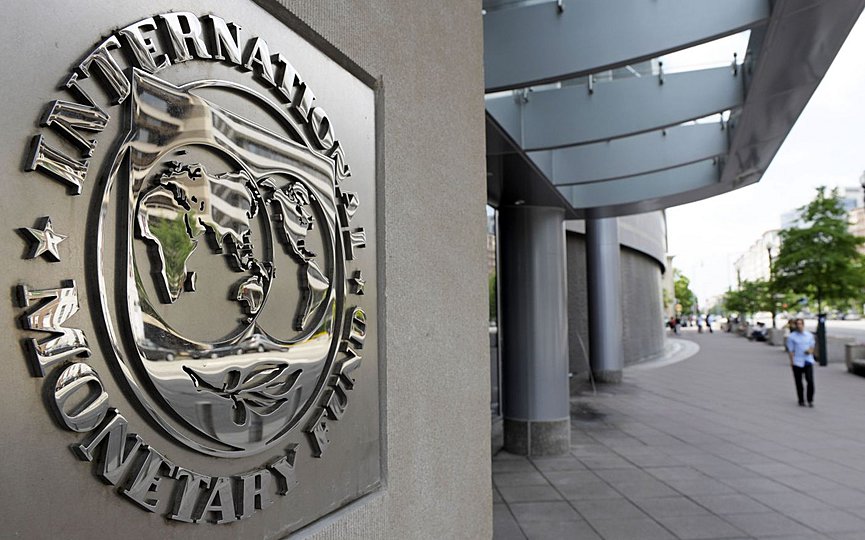General News
Meropi Kyriacou Honored as TNH Educator of the Year
NEW YORK – Meropi Kyriacou, the new Principal of The Cathedral School in Manhattan, was honored as The National Herald’s Educator of the Year.

ATHENS – Four years to the day that 326 billion euros ($327.21 billion) in international bailouts ended, the surveillance of Greece’s economy by monitors also ceased, ending a 12-year saga.
They began with pain in 2010 and came with harsh austerity measures including big pay cuts, tax hikes, slashed pensioners and worker firings, but the country’s rich prospered and Parliament workers were exempted.
The money came first from the Troika of the European Union-European Central Bank-International Monetary Fund (EU-ECB-IMF) before the European Stability Mechanism (ESM) took over for the IMF.
As part of conditions for getting the money that was needed to prevent an economic collapse caused by generations of wild overspending and runaway patronage by sucessive governments, the creditors insisted on surveiling the country’s performance, with automatic spending cuts a trigger if needed.
Prime Minister Kyriakos Mitsotakis – whose New Democracy party under then-premier Antonis Samaras needed a bailout and austerity continuance – said the end on Aug. 20 was “an historic day.”
The country could now look forward to a new, clean horizon … one of development, unity and prosperity for all,” he said, even though the most vulnerable aren’t prospering despite expected 4 percent growth during the COVID-19 pandemic.
He said the stopping of the monitoring ended “a 12-year cycle that brought pain to citizens closes. It brought stagnation to the economy and division in society,” although repaying the loans will take decades.
He added that the memorandums had imposed “unbearable taxes and cuts in wages and pensions, bank controls and mortgaging of public assets, the downgrading of national defense, public education and health, as well as the marginalization of Greece’s position in Europe and the world,” said Kathimerini.
The move sends “a message to investors and markets that Greece is out of the woods (and) a step closer to investment grade,” George Pagoulatos, head of the Hellenic Foundation for European and Foreign Policy think tank in Athens told the news site POLITICO.
“A difficult chapter for our country comes to a close,” Greece’s Finance Minister Christos Staikouras said in a statement earlier, allowing greater leeway in economic decisions, the state also pumping in aid for households during record inflation and soaring electric bills.
THE BIG BITE GOES ON
While checking Greece’s books is over, the impact of austerity that even led to suicide over the harshness is still being felt, the country only now coming bak to jobless levels no longer a record in the EU.
“Inflation is at the highest level in 29 years (while) wages are still very low,” Wolfango Piccoli, a Co-President at consultancy Teneo told the site of the persisting aftermath not lost on still-struggling Greeks.
“There are new economic challenges that completely sideline this moment. The focus for voters is on the real economy, rather than on technical issues,” he added, a challenge to Mitsotakis as he tries to accelerate a comeback.
Inflation stands at 11.5 percent, a cost-of-living index crushing on many Greeks and households, the government withdrawing from a pledge to consider reducing a 24 percent Value Added Tax (VAT) on food.
Greece also lags behind most advanced economies in offering well-paid jobs, according to the Paris-based Organisation for Economic Co-Operation and Development (OECD,) making it difficult to lure back scores of thousands of the country’s best and brightest who fled during the crisis.
Greece, despite the economy’s better-then-expected growth, still is the only Eurozone member whose debt is rated junk, Mitsotakis hoping to bring it to investment grade status in the first half of 2023.
Many economists, the report said, think the long-term cost of the bailouts will continue to show in a lesser quality-of-life for many who, if they find work, will be paid less than in most EU countries and have high taxes.
The Greek Gross Domestic Product GDP fell from $355.9 billion in 2008 to $188.7 billion in 2020 and is now starting to grow again at around $216.4 billion in 2021 but limiting how much can be done.
“It’s too early to say, whether the bailouts were successful,” said Piccoli. “The economy is picking up, but meanwhile the usual weaknesses are emerging. The concern is that not much has changed in terms of structure,” he added.
NEW YORK – Meropi Kyriacou, the new Principal of The Cathedral School in Manhattan, was honored as The National Herald’s Educator of the Year.

TORONTO (AP) — Police said nine people are facing charges in what authorities are calling the biggest gold theft in Canadian history from Toronto’s Pearson International airport a year ago.
RUMFOLD, RI – Anastasia Georgiadis, 83, of Rumford, RI, passed away peacefully surrounded by her loving family.
There’s no shortage of people who have strong visceral feelings of hatred, disgust, and contempt for Donald Trump.
CLAYMONT, DE – The Greek Orthodox Metropolis of New Jersey held its annual Clergy Laity Assembly and Philoptochos Convention at The Waterfall in Claymont, Delaware, on April 9.
In seaside KALAMATA, MESSINIA, bright, renovated three-bedroom, 4th floor APARTMENT FOR SALE with built-in kitchen appliances, spacious terraces, awnings, dedicated laundry area and good layout.